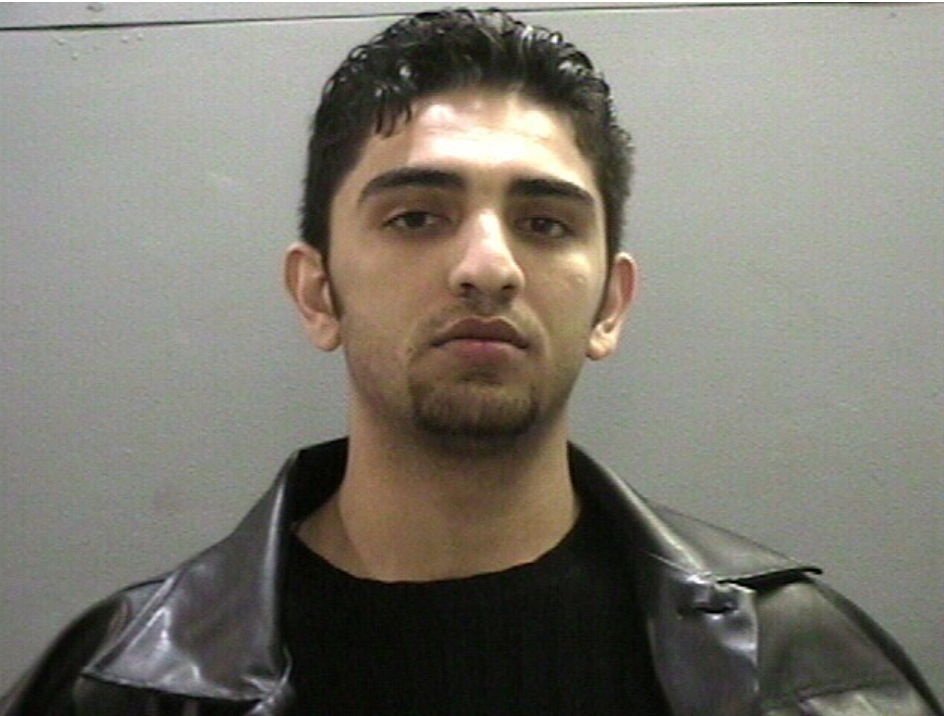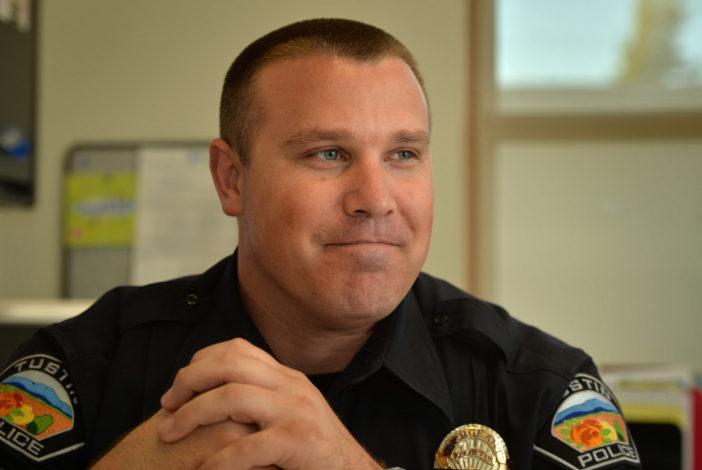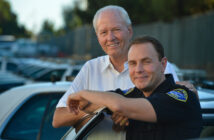The victims said the the man who beat and then raped them never would be found.
He was too smart and too cunning, they said.
Even a sergeant at the Tustin PD told the eager detective who wanted to try and track the man accused of raping several women in Southern California before fleeing the country, this would be a difficult case.
The case went cold in 2005.
Four years later, Sgt. Ryan Coe, a detective at the time, wanted to take it on.
It was his first big challenge since becoming a police officer, and it was one that would make history.
Tracking a serial rapist
People seemed easily drawn to Ali Achekzai.
Women found his tall frame, quasi-athletic build and seemingly permanent 5 o’clock shadow attractive.
He was well-educated and eloquent.
Achekzai spoke seven languages and although an Afghanistan native, he didn’t have a trace of an accent.
Achekzai illegally came to the United States in 2001.
He said he fled Afghanistan after the Taliban threatened his family, but there is no way to know if his story holds true, police said.
Police didn’t know if anything Achekzai said was true because much of the way he operated was rooted in deceit.
A charlatan who veiled manipulation as charm, Achekzai had a way of making women trust him — even women he had just met.
He would try to romance them, but if he didn’t get what he wanted he would beat and then rape them.
That’s the way it happened for an Irvine women who on Jan. 31, 2004 met Achekzai at a night club in Laguna Beach.
They met, talked and danced, then said goodbye.
The woman left with her male friend and Achekzai followed in her car.
She dropped her friend off and the driver behind her continued to flash his high beams until she pulled over in the parking lot of a fast food restaurant at Jamboree Road and Edinger Avenue in Tustin.
It was Achekzai — the man the woman met at the Laguna Beach nightclub who she knew as only Ali.
He told her that the man she dropped off was dangerous. She waved away his warnings and tried to leave.
Achekzai pushed her into her car, but she managed to escape.
The woman ran, but he caught up with her and grabbed her by the hair, dragging her back to her car.
He punched her and shoved her into the passenger seat, where he raped her.
The 21-year-old woman tried to jot down Achekzai’s license plate after it was over but could only get a few numbers.
Tustin police investigated the rape and gathered DNA evidence, but no match came back.
About four months later, there was a hit.
A woman on May 3, 2004 told police she also was raped by Achekzai.

Ali Achekzai was convicted in December 2011 of six felonies, including forcible rape and aggravated assault, and sentenced to 56 years to life in prison. Photo courtesy Tustin PD.
Achekzai was with his cousin and a friend at a San Diego nightclub where they met three women.
After leaving the club, the six went to Mt. Soledad and Achekzai asked one of the women to go on a walk.
They started kissing, then she told him to stop.
Achekzai wanted more and when she refused, he punched her in the face, knocking out two teeth, then raped her in the bushes.
The 21-year-old told her friends what happened when they returned and the woman later reported it to police.
This victim was able to get a full license plate number.
When police investigated, Achekzai’s DNA hit to an unsolved rape in Tustin.
Police tracked down Achekzai’s cousin who told them the 32-year-old fled the country fearing the police would be after him.
At the time, Tustin police worked with the FBI to track Achekzai to Canada, but learned he ran again.
“And that’s where the case kind of dies,” Coe said on a recent Tuesday at the Tustin Police Department.
Chasing an international fugitive
When Coe was transferred to the detective’s bureau in 2009, he started to go through Tustin PD’s unsolved cases.
The Achekzai rape case stood out and the detective wanted to find him so the man could answer for his crimes.
He started working on background and Achekzai popped up in a sexual assault investigation in Laguna Beach.
A woman accused Achekzai of fondling her in a limousine outside a nightclub — the same one where he met the Irvine woman and later sexually assaulted her in Tustin.
Coe checked with the Orange County District Attorney’s office to ensure if he found Achekzai, they could prosecute.
They advised him to find the victims and make sure the women were on board, but otherwise he could move forward.
Coe called all three women.
At first, they seemed put off at having to re-hash the trauma they experienced, but they also were grateful they had not been forgotten, Coe said.
“They were pretty emotional but every one of them said, ‘You’ll never find this guy. He’s too smart to come back to the United States’,” he said.
The detective would soon find out coming back to the U.S. wouldn’t be necessary to find Achekzai.
International hit
Coe submitted Achekzai’s DNA profile to INTERPOL, betting on the fact the Afghanistan native didn’t also leave behind his predatory nature when he left the country.
During one of many middle-of-the-night feedings with his newborn son on Jan. 4, 2010, Coe’s phone rang.
He assumed a major crime happened in Tustin and he was getting called in.
Instead, it was good news from INTERPOL.
“We received a hit on your submission,” the voice on the phone said.
“That’s amazing. Where in Canada was this hit?” Coe asked.
“It’s not in Canada. It’s in Austria.”
Achekzai, who was working as a pizza cook in a hotel, was arrested after a woman he went on a date with said he raped her.
Austrian law enforcement officials swabbed Achekzai’s cheek for DNA, which connected him to the California cases, although he was now going by Ahmad Wali Shoja.
The victim in that case later refused to press charges and Achekzai was freed, but the DNA hit was enough to get an international arrest warrant, called a “red notice” for Achekzai.
FBI and Salzburg officials on Jan. 26, 2010 arrested Achekzai.
It took seven months to get the extradition in order before Coe and FBI agent Anastasia McDermott could bring Achekzai back to the United States.
“He was so arrogant and absolutely convinced that this wouldn’t go to trial, and that it was all some kind of misunderstanding,” he said.
Coe landed in Los Angeles with Achekzai on Aug. 27, 2010.
Achekzai was on the Orange County District Attorney’s “Most Wanted” list and was prosecuted by Deputy District Attorney Robert Mestman, who Coe called an aggressive prosecutor and tremendous resource in helping him re-investigate the case.
Achekzai was convicted in December 2011 of six felonies, including forcible rape and aggravated assault, and sentenced to 56 years to life in prison.
Case closed
January marked the five-year anniversary of the Achekzai arrest — a landmark case not only because of the gravity of the crimes Achekzai committed, but also because of how he was caught.
This case was the first international INTERPOL DNA hit in California.
Coe was summoned by INTERPOL to present the case at the agency’s headquarters in Lyon, France.
He traveled internationally to track Achekzai down and had the satisfaction of leading him out of Los Angeles International Airport in handcuffs.
But those weren’t even the best parts.
When Coe sat in a Starbucks across from the Irvine resident who was raped by Achekzai in Tustin — who is now married with children and happy — she cried and then hugged him.
He told the other two women over the phone — they too were grateful.
That was the best part.
“I had developed this professional relationship with these women and re-opened their wounds so I was relieved to tell them, ‘OK it’s over. You can have some closure’,” Coe said.
 Behind the Badge
Behind the Badge



